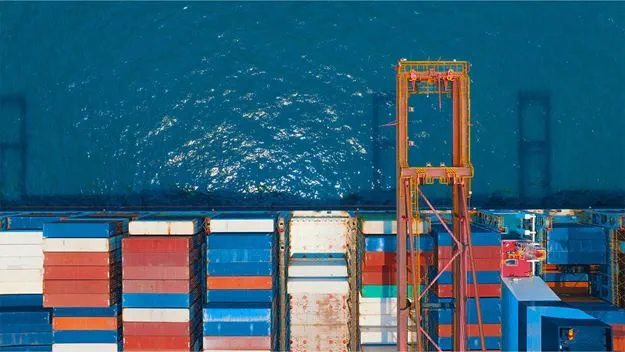Decarbonise your shipping with biofuel insetting - with the first year of costs on us*
We know being better for the planet and reaching net-zero is more than just a want for our customers, but a need - both for the globe and compliance with 2030 and 2050 regulations. With biofuel insetting, you have a more direct way to manage your CO2 emissions as opposed to mitigating them afterwards by planting trees or carbon capture.
Insetting allows your business to have control from the beginning, and by using second generation biofuel made from waste products as well as receiving declaration on the biofuel, you can lower your emissions footprint more transparently than ever. With our global network, we can customise supply chain management to suit your needs - whatever they are while decarbonising your LCL transport.
*Terms and conditions apply.
(Only first year covered by DSV, second year onwards customers begin payment. Free decarbonisation applies to all shipments with departure in 2025 and only valid in 2025. Offer only valid for transatlantic routes. 2025 emissions declarations automatically issued Q1 2026. Contact our team for details).
(Only first year covered by DSV, second year onwards customers begin payment. Free decarbonisation applies to all shipments with departure in 2025 and only valid in 2025. Offer only valid for transatlantic routes. 2025 emissions declarations automatically issued Q1 2026. Contact our team for details).
-
Transparency
Full overview of emissions -
Verifiable impact
Receive declaration on emissions -
2nd Gen biofuel
Full assurance of emissions reduction
You may also be interested in
-

LCL
Our LCL services makes shipping smaller volume cargo across the world simple, reliable and efficient.Read more -

Sustainable fuel offerings
Fuel your green transition and reduce emissions without changing your operations with biofuel technology.Read more
Frequently asked questions
Insetting is the practice that focuses on reducing the CO2 emission within the company’s direct supply chain or operations, through the purchase of Biofuel. Whereas offsetting focuses on external projects to reduce CO2 emission elsewhere.
Why has DSV chosen to coinvest in our customers’ decarbonization journey?
The green transition is essential for DSV. We are committed to SBTi, and would like to take part in the green transition with this initiative, by reducing the CO2 emissions, and share a green lane with our customers.
Are we charged for decarbonization on this lane?
No, for shipments with departure in 2025 this service is free of charge.
Are we as a customer able to purchase biofuel on other lanes or transports?
Yes, if you want to purchase additional biofuel, to compensate your CO2 emission within DSV transports, pls reach out to your daily contact.
Is it possible to get CO2 declarations or prove of the decarbonization, and how is it issued?
In the early stages of 2026 DSV will issue declarations based on the 2025 emissions in an automated process, so customers will receive the declaration from their daily contact.
Will the CO2 reductions be visible in our CO2 reports or on the invoices?
No – the original CO2 emissions remain on the CO2 report and invoices, but declarations can be issued separately.
Does our daily operations change, or do we have to book differently than other lanes?
There will be no changes in your daily operations, and booking procedure remains the same
Which shipments are included in the “Transatlantic scope”?
All DSV Sea LCL Groupage shipments imported and exported to USA from Germany, UK, Sweden, Finland, Denmark and Belgium. If a shipment is arranged in the ECOS consolidation setup via Germany, it is also included.
Example: an LCL shipment from Poland, which is moved to Germany to be loaded into a consolidated container and shipped from Hamburg to USA, will also be included in this scope
Example: an LCL shipment from Poland, which is moved to Germany to be loaded into a consolidated container and shipped from Hamburg to USA, will also be included in this scope




